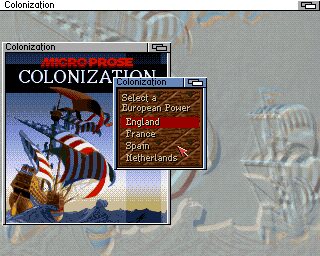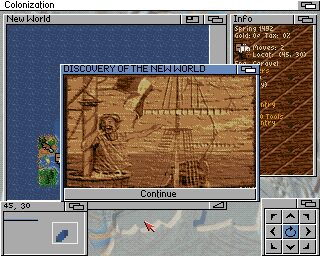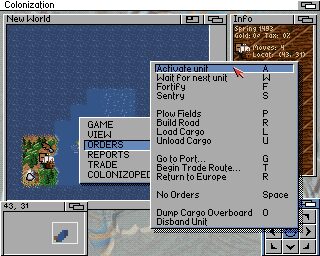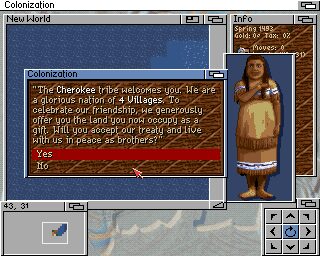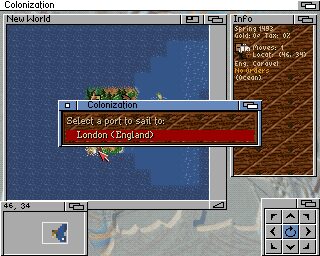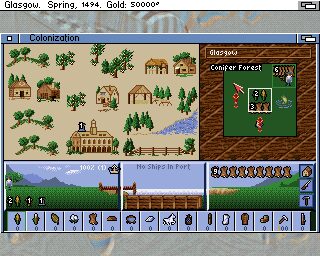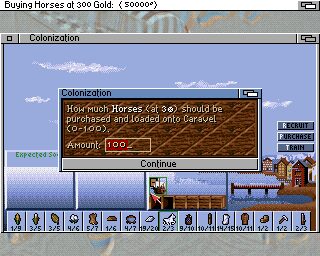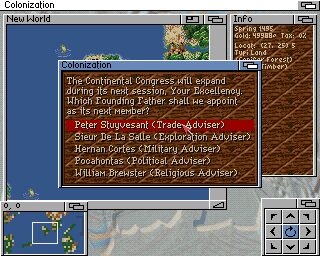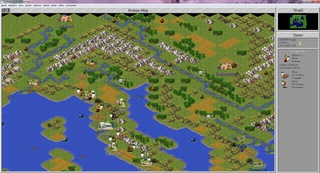Sid Meier's Colonization is often remembered as one of the most sophisticated and ambitious strategy games of the 1990s. Despite bearing Sid Meier’s name, the driving force behind its creation was Brian Reynolds, who would later gain recognition for his work on Sid Meier’s Alpha Centauri and Sid Meier's Civilization II. At the time, Reynolds was a young designer at MicroProse, and he created Colonization largely on his own, using the Sid Meier's Civilization engine as a foundation. He worked closely with Sid Meier in a mentorship role, receiving guidance but taking the lead in shaping the project’s unique direction.
The game appears at first to follow the traditional 4X formula: explore, expand, exploit, and exterminate. But very quickly, Colonization diverges into new territory. Unlike Civilization, which has a more open-ended structure and allows players to win through various victory conditions, Colonization builds toward a specific historical narrative: declaring independence from the mother country and then surviving the War of Independence. This lends the game a strong narrative arc, and the climactic struggle provides closure—something rare in strategy games of the time.
Equally innovative is the game's economic model. Players must establish colonies, gather resources, build industries, and engage in transatlantic trade. Every colonist has a specific profession and skill level, and players must train their citizens, balance production chains, and transport goods efficiently. The economy is not just a background system—it is the core of the game. You cannot succeed through conquest alone. You must manage supply chains, optimize labor, and adapt to market prices and shifting royal taxes.
But Colonization is not without controversy. Critics have long pointed out that the game simplifies or erases some of the darker realities of colonial history. The depiction of indigenous peoples is simplistic at best and exploitative at worst, often reduced to passive obstacles or tools for economic gain. Even more glaring is the complete absence of slavery as a mechanic, a decision likely made to avoid controversy but which severely distorts the historical reality of the period. These omissions have been the subject of academic critique and fan discussion alike.
Despite these criticisms, Colonization remains a landmark in game design. Its innovative structure, rich economic system, and focus on historical narrative rather than pure expansionism helped redefine what a strategy game could be. It laid the groundwork for later titles like Anno 1602: Creation of a New World and The Patrician, and it demonstrated how complex systems and storytelling could work together in an interactive format. Even today, it stands out as one of the most thoughtfully designed and engaging historical strategy games ever made.


